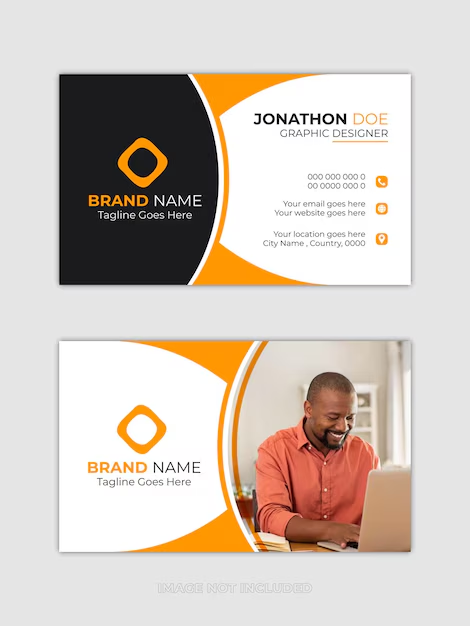Starting a small business can be one of the most empowering and rewarding decisions you’ll ever make. Whether you’re driven by a passion, a desire for independence, or the hope of financial freedom, building something of your own is both exciting and challenging. The good news? With the right steps, clear planning, and a little grit, your big dreams can turn into a thriving reality. Here’s how to get started on your small business journey.
1. Define Your Vision and Purpose
Every successful business begins with a clear vision. What problem are you solving? Who will benefit from your product or service? Take time to write down your mission statement. This will help guide every future decision—from branding and marketing to pricing and customer service.
Ask yourself:
- What am I passionate about?
- What unique value can I offer?
- Who is my target audience?
Having clarity on your “why” will help keep you focused during the ups and downs of business ownership.
2. Do Your Market Research
Before you invest a dime, you need to understand the market. Research competitors, identify gaps in the market, and analyze customer needs. A few questions to explore:
- Is there demand for what I’m offering?
- Who are my competitors, and what do they do well or poorly?
- What are my potential customers currently spending their money on?
Online surveys, forums, and social media groups can be great places to gather insights. Solid research lays the foundation for a business that meets real needs.
3. Create a Business Plan
A business plan doesn’t have to be 50 pages long, but it should outline your strategy. A good plan includes:
- A business summary
- Market analysis
- Product or service description
- Marketing and sales strategies
- Operational plan
- Financial projections
Even if you’re not seeking outside funding, a business plan gives your ideas structure and helps you stay on course.
4. Choose the Right Business Structure
Your business structure impacts your taxes, liability, and operations. Common structures include:
- Sole Proprietorship – simple, but you’re personally liable for debts.
- LLC (Limited Liability Company) – provides personal liability protection.
- Partnership – ideal if starting with a partner.
- Corporation – more complex, usually for larger operations.
Consult a legal or tax advisor to determine the best fit for your situation.
5. Handle the Legal Details
Starting a business requires more than just a good idea. You’ll need to:
- Register your business name
- Obtain necessary licenses and permits
- Apply for an Employer Identification Number (EIN)
- Open a business bank account
Staying compliant with local, state, and federal laws protects your business and builds trust with customers.
6. Secure Your Finances
You don’t need a massive bankroll to launch your small business, but you do need a solid financial plan. Begin by creating a realistic budget and identifying your startup costs. There are several ways to fund your new venture, including:
- Personal savings
- Small business loans or lines of credit
- Crowdfunding platforms
- Angel investors or local business grants
Consider reaching out to a Detroit-based credit union for accessible and community-focused financing options. Many credit unions offer small business support, personalized service, and competitive loan rates that can help you get off the ground.
And don’t forget—keeping your personal and business finances separate is essential for accurate bookkeeping, tax reporting, and long-term growth.
7. Build Your Brand
Your brand is more than a logo—it’s the personality and promise of your business. Invest time in:
- Choosing a memorable name
- Designing a professional logo
- Building a user-friendly website
- Creating social media profiles
Your brand should reflect your values and appeal to your ideal customers. Consistency across all platforms builds credibility and customer loyalty.
8. Start Small, Then Grow
You don’t have to launch with everything at once. Consider starting with a minimum viable product (MVP) or offering a limited service range. Get feedback, make improvements, and scale gradually. The key is to learn as you go.
Don’t wait for everything to be perfect—progress beats perfection.
9. Market Like You Mean It
Marketing is how people discover your business. Use a mix of strategies like:
- Social media marketing
- Email campaigns
- Content marketing (blogs, videos, etc.)
- Local networking and community events
Track what works and adjust your efforts over time. Great marketing isn’t about having the biggest budget—it’s about knowing your audience and reaching them effectively.
10. Stay Resilient and Keep Learning
Entrepreneurship is a rollercoaster. You’ll face setbacks, competition, and unexpected obstacles. But with each challenge comes growth. Stay curious, keep learning, and connect with other entrepreneurs for support.
Books, podcasts, courses, and mentors can all help sharpen your skills and boost your confidence.
Final Thoughts
Starting a small business may seem daunting, but it’s completely within reach. With thoughtful planning, determination, and a willingness to learn, your small idea can grow into something truly impactful. Remember, every big company started somewhere—your dream deserves a chance too.
Take that first step. Your future business is waiting.





